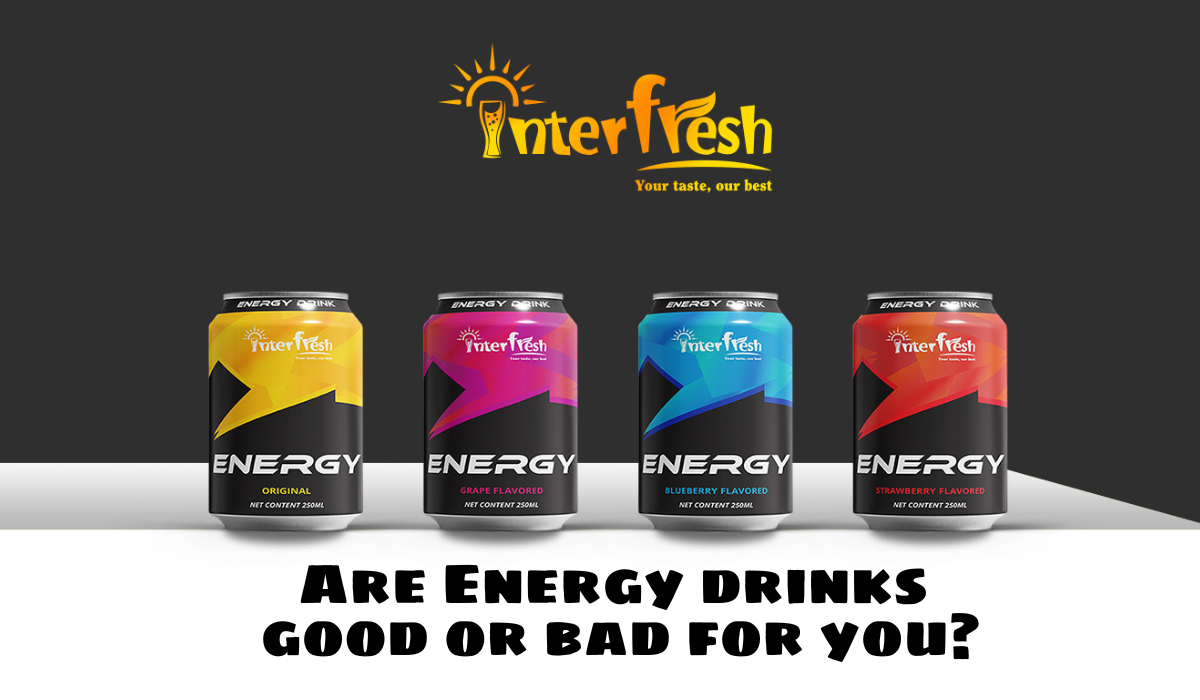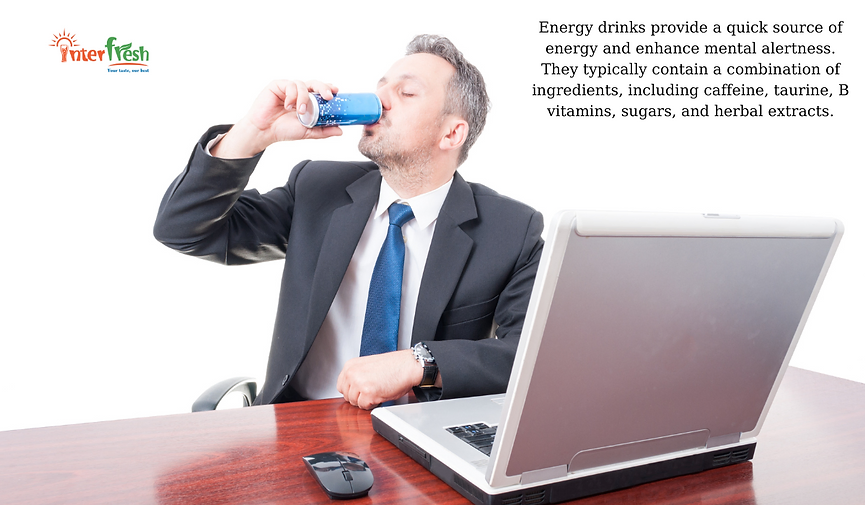In the fast-paced world we live in, where demands on our time and energy seem to be ever-increasing, many people turn to energy drinks for a quick boost. These beverages are marketed as a solution to combat fatigue and enhance mental performance. But what exactly are energy drinks, and what do they really do for our bodies? In this article, we’ll dive into the benefits, potential drawbacks, and key considerations for anyone thinking about incorporating energy drinks into their routine.

Table of Contents
What Are Energy Drinks?
Energy drinks are specialized beverages designed to provide a quick source of energy and enhance mental alertness. They typically contain a combination of ingredients, including caffeine, taurine, B vitamins, sugars, and herbal extracts. Each of these components contributes to the drink’s intended effects, making them popular among students, professionals, and athletes alike.

Common Ingredients
-
Caffeine: The most prevalent stimulant in energy drinks, caffeine acts as a central nervous system stimulant, temporarily warding off drowsiness and enhancing concentration.
-
Taurine: An amino acid that may help improve physical performance and support neurological function.
-
B Vitamins: Essential for energy metabolism, these vitamins play a crucial role in converting food into energy.
-
Sugars: Often included to provide a quick energy source, though excessive sugar can lead to a rapid spike and subsequent crash in energy levels.
-
Herbal Extracts: Ingredients like ginseng or guarana are sometimes added for their purported health benefits.
Benefits of Energy Drinks
1. Enhanced Mental Focus and Alertness
One of the most immediate effects of consuming energy drinks is improved mental alertness. The caffeine in these drinks stimulates the brain, which can lead to increased focus and cognitive function. This can be particularly beneficial during long hours of studying, and working, or when you’re facing a demanding task that requires intense concentration.
2. Quick Energy Boost
Energy drinks provide a rapid source of energy, primarily due to their high sugar content. After consumption, many users experience an immediate increase in energy levels, which can help them power through tasks, workouts, or late-night study sessions. This quick energy boost can be especially appealing for athletes or individuals engaged in strenuous physical activities.
3. Support for Physical Performance
Research suggests that energy drinks may enhance physical performance. Caffeine has been shown to improve endurance and strength, making it a popular choice among athletes. Additionally, the combination of caffeine and taurine may help reduce perceived exertion, allowing individuals to push themselves harder during workouts or competitions.

4. Reduction of Fatigue
Energy drinks can be effective in combating feelings of fatigue. After a long day or an intense work session, consuming an energy drink can help rejuvenate the body and mind. The revitalizing effect can help you bounce back quickly, making it easier to tackle additional tasks or responsibilities.
5. Social and Cultural Appeal
In many social settings, energy drinks have become a cultural phenomenon. They are often associated with nightlife, sporting events, and social gatherings. This social aspect can add to their appeal, as people enjoy sharing these drinks with friends or using them as mixers in cocktails.
Important Considerations When Using Energy Drinks
While energy drinks have their benefits, it’s essential to approach their consumption with caution. Here are some critical points to consider:
1. Avoid Overconsumption
Excessive intake of energy drinks can lead to a range of negative health effects. High levels of caffeine can cause anxiety, sleep disturbances, rapid heartbeat, and increased blood pressure. Regularly consuming more than the recommended amounts can also lead to caffeine dependence and withdrawal symptoms. Moderation is key; it’s advisable to limit yourself to one or two servings a day.
2. Timing Matters
When you consume energy drinks can significantly impact their effectiveness and your overall health. Avoid drinking them too close to bedtime, as caffeine can disrupt sleep patterns, leading to insomnia and fatigue the following day. Instead, consider consuming them in the morning or during mid-afternoon slumps when your energy naturally dips.
3. Not Suitable for Everyone
Certain groups of people should exercise caution or avoid energy drinks altogether. Pregnant women, individuals with heart conditions, those with high blood pressure, and children are particularly susceptible to the adverse effects of caffeine. If you belong to one of these groups, it’s best to consult with a healthcare professional before consuming energy drinks.

4. Choose Quality Brands
Not all energy drinks are created equal. The market is flooded with products, and not all of them provide the same quality or safety standards. Look for reputable brands that disclose their ingredients and have undergone safety testing. Reading reviews and seeking recommendations can help you make informed choices.
5. Be Aware of Sugar Content
Many energy drinks are loaded with sugars, which can contribute to weight gain and other health issues if consumed in excess. It’s essential to read labels carefully and consider opting for low-sugar or sugar-free options if you’re concerned about your sugar intake.
The Bottom Line
Energy drinks can be a useful tool for enhancing energy levels and mental clarity when used responsibly. However, it’s crucial to approach their consumption with awareness and moderation. Understanding the benefits, potential drawbacks, and health considerations can help you make informed decisions about incorporating energy drinks into your routine.
Ultimately, while energy drinks may provide a quick fix for fatigue, they should not replace a balanced diet, proper hydration, and adequate sleep. For sustained energy and overall well-being, prioritize a healthy lifestyle that includes regular exercise, nutritious food, and sufficient rest. When used thoughtfully, energy drinks can serve as a helpful ally in navigating the demands of modern life, but always remember that health should come first.
